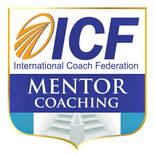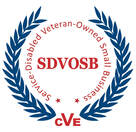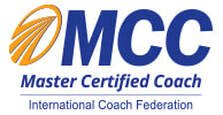|
While I love coaching and helping clients maximize their potential, I also love discussing ethical considerations in coaching. A question that often comes up in coaching is when does the actual coaching relationship start?
In my opinion the answer to this question is based on the potential client’s perception. This is why it’s incumbent on the coach to inform the perspective client when actual coaching has started versus initial consultation, etc. Here are some strategies that may help keep all parties clear: The coach should differentiate between an informational consultation call and a real coaching session. “Thanks for giving me this opportunity to talk to you about coaching – if it’s okay with you, we can spend 20 minutes or so and I will explain what coaching is and how I work as a coach and along the way, you can ask me questions… and just so you know, this is not actual coaching, just a consultation.” “Great… it sounds like you are ready to get started and I am very excited that you have decided to work with me. In order for us to get started actually coaching, I need you to review and sign our coaching agreement.” “I see you have signed and returned our coaching agreement, thanks for getting that back to me. Since you have no questions about the agreement let's go ahead and get started with coaching… ” While the above dialog may seem elementary, it is important to clearly set client expectations. If the coach is not clear, and if the client believes a coaching relationship has started then a fair argument can be made that it has. But who cares? No one really until something goes wrong. Think of the coach that also offers consultation services or facilitates strategic planning, etc. This is what makes having a solid coaching agreement in place such a spectacular idea. All parties know what to expect and there are no surprises. In fact, the coach can even have in her coaching agreement a provision that reads something like: “A coaching relationship implies certain rights and responsibilities for both parties. Our coaching relationship does not start until this coaching agreement is signed by both parties.” The above strategies achieve two ends, it ensures the client is clear when the relationship starts and it ensures the coach uses an agreement. But this assumes the coach is really using an agreement. The coaching agreement is everyone’s friend, without it the client lacks clarity and it’s hard to say when the relationship has started and the coach forfeits a valuable opportunity to educate and set expectations. What are your thoughts?
3 Comments
9/24/2018 08:24:17 am
Transience or momentariness is the first certitude. Likewise, hankering to be the cause of transitoriness is the second fact, and uncoupling to the end pining is the third law. From my perspective, coaching or mentoring is not about the coach or mentor, it is about the patronage or client which is the only moral-philosophy that a person has to remember. There must be clearly defined restrictions on what training is and is not. Equality and diversity have to be emphasized equally to make the most out a business coaching.
Reply
Scott Howard
9/25/2018 07:09:02 pm
Hi Brant - I concur with you 100%... coaching is not about the coach, but entirely about the client and the agenda they choose. the coach is only partnering with the client to help move them forward. And at times, it can be a very exciting and rewarding process. Thanks for your comment.
Reply
Leave a Reply. |
ScottHowardCoaching LLCAuthorScott Howard is a professional executive coach and leadership coach focusing on human empowerment and maximizing potential. Archives
June 2020
Categories |
 RSS Feed
RSS Feed



